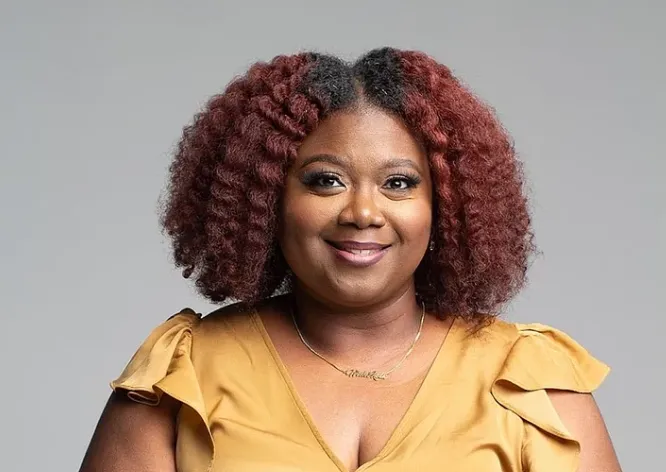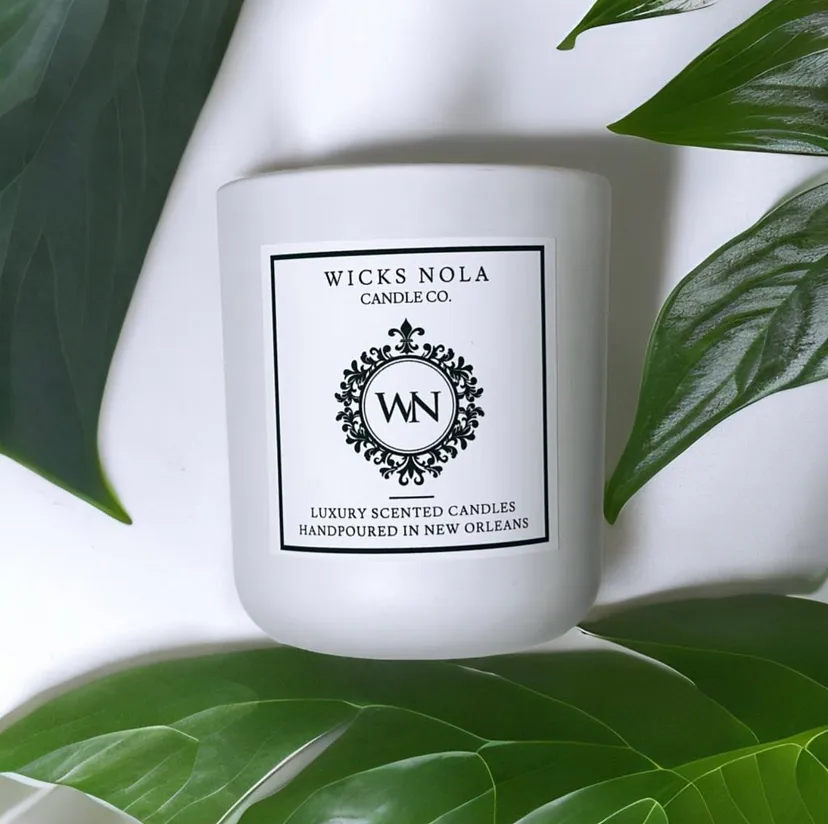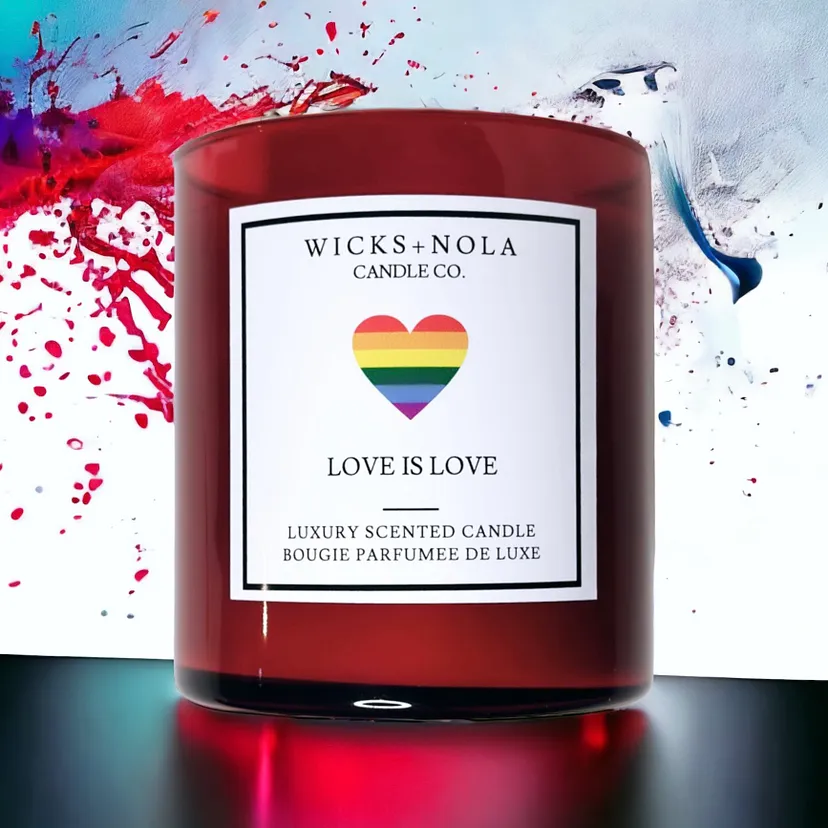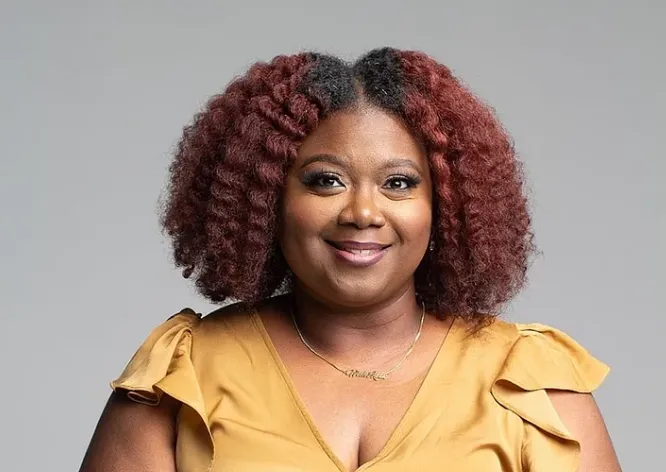
Image for Wick’s NOLA Candle Company
Not even the fire that burned down Tiffany Brown’s second candle store will stop her from pursuing her startup and financial dreams.
“I’m hoping to move out of my kitchen soon. The candles have pretty much taken over my entire house. I want to start working from a distribution center and get into Whole Foods, Macy’s, Neiman Marcus, and Saks. That’s what’s on my agenda. I hope to do one of those things before the year is out.”
Five years ago, Brown was a 42-year-old mother of two teenage girls and a full-time manager for a pediatric clinic when she needed a way to bring in extra income.
“I had two older teenage girls who were becoming more expensive as the days went on — wanting to drive and go to dances and all these other things. So, I started making candles based on my love for fragrance. I turned a hobby into a full-time business for myself.”
But the journey of that business, Wick’s NOLA Candle Company — a luxury line of candles and home products inspired by New Orleans — has been a heartful and hard-fought path. Through hurricanes, fires, and sacrifice, Tiffany Brown has emerged from the flooding waters, electrical smoke, and some hard lessons to remain unfathomably unstoppable, and she wants to share her lessons with you.
Read on to hear Brown’s poignant insights from her entrepreneurial journey and why she wants you to keep going, no matter what.

Image via Wicks NOLA Candle Co
digitalundivided: How did you develop the sensory concept for Wicks NOLA Candel Company?
Tiffany Brown: The concept came from, honestly, my dad. My dad passed away two years ago. He and my mom divorced when we were young. He didn’t have much money and paid child support for us, my mom, everything. So, when the weekends would come, we would go to his house, and he would try to find the least expensive things for us to do on the weekends to have fun while we spent time together. He would take us to New Orleans to be tourists in our own city. We would ride the steamboats, and he’d take us to the levee. Or, we go to Cafe Du Monde and eat beignets, walk to St. Louis Cathedral, ride the streetcars, or listen to jazz on the corner of Bourbon Street. There are all these different little things that I still hold on to. I wanted to put that into my candle brand and just spread that culture out to everybody.
“Voodoo Spell” which is one of my favorite candles, has currant, patchouli and it’s got some blackberry in it, so it is more woodsy and earthy. I named it that because the first time I poured that candle, I felt like the scent kind of put me in a trance. I felt like I was under a spell. The first thing that came to me was that this was a voodoo spell. This is magic. This scent is magic.
“With Love, Nola” is another one of my favorites. It’s made with pear and cask-aged brandy, sugar, and cinnamon. It’s a hot scent. It felt like a love letter from New Orleans. That’s why I just named it “With Love, Nola.”
digitalundivided: That’s an amazing story. Am I correct to assume you’ve had to teach yourself how to be a candle maker? Or at least how to manage the candlemakers in the process? What did the learning curve look like?
Tiffany Brown: I never was a candle maker before, never had any previous experience making candles. I’ve just always been a lover of fragrance. I tell everybody you can Google or YouTube pretty much anything now. So many people have done this before me and have different classes you can take — videos online that kind of teach you what to do, what to buy, and what to start with. In the beginning, I tried so many different things. But there were a couple of things that I wanted my candle line to be, and that’s because when I would buy candles from other makers, they’d leave soot deposits on my walls and furniture and things like that. The more I got into candle making, I started to see that a lot of the more prominent brands were not made with more eco-friendly, clean-burning products.
I wanted to try to use as clean of ingredients as I could. With the wax that I use, the fragrance oil that I use, making sure that it is both phthalate-free and toxin-free, making sure that the wax that I used was plant-based, that it was sustainable, eco-friendly, and making sure even down to the jars that I use that they were able to be recycled and reused so that I wasn’t contributing to the detriment of the planet as a whole.

Image via Wicks NOLA Candle Co
digitalundivided: What do you want entrepreneurs — or people who are thinking about entrepreneurship to know?
Tiffany Brown: It’s not always good times. I opened my first brick-and-mortar back in 2020. We were open for almost a year, and Hurricane Ida happened here in Louisiana. We lost that shop completely. We were renting that shop from someone, and she decided after the storm that she didn’t want to rebuild. So, we had to find a new space.
Two months later, I was able to move into what was my dream location. We moved into a shop in New Orleans on Magazine Street — a really great tourist area. Rent was a little high, but as I said, a lot of tourists come through that area on a daily basis, and we were doing really well. Four months later, I got a call at four in the morning saying that the store was on fire. I lost that store to a piece of electrical equipment that I had in the back that malfunctioned.
I felt like giving up; I felt at my lowest point. I’ve only just gotten to a point now a year later that I’m able to talk about that story without crying because I sacrificed so much to get that store open. I didn’t take out any loans. This was all out of my own pocket. My family was pitching in and working overtime. With help, we made all of our own products. So, we had to stock the store, furnish the store, permits, deposits, and all of that. We also did not have an insurance policy because no one would write us a policy in the state of Louisiana right after a major storm.
So, when I say we lost everything, we lost everything. I was forced to come back here to work out of my kitchen, which is what I did when I first started. Now, I’m back in that same position a year later, still here working out of my kitchen. But we’ve done well. People have supported us. We have not stopped, and I have not stopped.
Winston Churchill always said, “Success is not final. Failure is not fatal — it is the courage to continue that counts.” I live by that because it takes a lot of courage to lose and have lost, but to keep going. You know that at the end of it, there’s going to be a reward. I know at the end of this, everything that I’m wanting for myself and for my business, and to leave a legacy for my children to have something after me — to be able to have something of their own — is what drives me. That’s what’s important to me.
digitalundivided: What advice do you have for other entrepreneurs on their journey?
Tiffany Brown: I would say, firstly, when you decide that this is something that you want to go into, I think people glorify being a boss, being a girl boss, being a business owner.
But it’s work. It’s a lot of work; it’s a lot of sacrifices. It’s many sacrifices of self. It’s a sacrifice of family time and sometimes of relationships. It’s just a lot. So, I caution anybody that goes into this thinking it will be just this glorified experience. It’s not. You’re going to work longer and more hours than you did before.
It’s not all negative because I love what I do. I love being free to go to things at my kids’ school if I need to. If we need to take off to go on a vacation. But it’s a sacrifice. I tell many people I was working so much at once because I was pretty much it. I did all of my production because we hand-make our products. On top of that, I was running the store. But I was working so much and giving so much to the business that I was neglecting my family and my time with my children.
So, I tell people to make sure that you’re making time for everything. That’s hard to do, especially when trying to build something successful. But you must be careful and mindful that you are putting in time in all areas and aspects of your life, not just the business, because, as I said, those things will suffer if you’re not careful.
The other thing is that you either adapt or die. COVID taught us that more than anything else. You have to be able to be ready to say what’s next. You have to be able to look at your business and figure out what else you could offer to your customers that will continue to bring in an income: adapt, pivot, and reinvent yourself.

